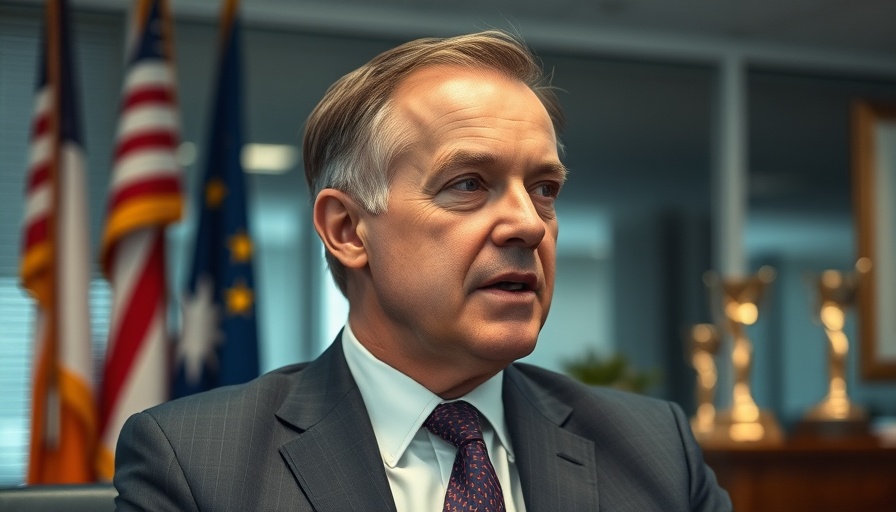
Breaking Down the Fallout from an FBI Search at John Bolton's Residence
In a dramatic turn of events, former National Security Advisor John Bolton returned home after FBI agents conducted a search of his property. The images of Bolton interacting with the media following the search raise numerous questions about the implications for the political landscape and national security. As the situation unfolds, it’s essential to examine the details and context surrounding the FBI's actions and the broader repercussions for the U.S. political environment.
In 'Watch The Moment John Bolton Returns Home After FBI Agents Performed A Search,' the discussion dives into the recent FBI search warrant executed at Bolton's residence, exploring critical insights that sparked deeper analysis on our end.
What Prompted the FBI Search?
The search at Bolton's home comes amid ongoing investigations into various national security and political concerns. While the specifics of what the FBI was seeking haven’t been fully disclosed, it’s clear that the FBI and Department of Justice are intensifying efforts to probe potential security breaches and improper handling of classified information. This raises a pressing question: How does this investigative approach reflect current U.S. national security policies?
The Stakes of National Security and Political Accountability
With increasing scrutiny on former officials, the actions of the FBI illustrate a significant shift in how national security is being handled in America today. As former officials, including Bolton, face legal examinations, it raises questions about the extent of accountability at the highest levels of government. Such investigations are critical for upholding democracy and ensuring that those in power are held responsible for their actions.
A Look into Similar Cases: The Precedent
The search of John Bolton's residence isn't an isolated incident. Over recent years, there have been several notable investigations into former officials regarding the improper handling of classified information. For instance, the case of former Secretary of State Hillary Clinton's email server and the inquiries into former President Donald Trump’s classified documents have marked a growing trend of accountability measures. Comparing these instances can provide insights into the evolving standards for national political figures and their responsibilities toward information security.
Public Reaction: What It Means for U.S. Politics
The timing of the search has sparked a flurry of opinions among the public and political commentators, reflecting divisions within the American political landscape. Many view investigations of high-profile figures like Bolton as necessary for restoring faith in governance and establishing stringent standards for security protocols, particularly during this polarized era. On the flip side, others decry such searches as politically motivated, potentially leading to further entrenchment of partisan divides. This dichotomy illustrates the complex nature of national political narratives today and the conversations surrounding accountability and transparency.
Future Implications for Public Officials
As the fallout from the search unfolds, it is essential to contemplate what this means for future public officials. The precedent set by investigations like these is crucial for shaping future protocols surrounding the handling of classified materials and national security matters. Officials must be increasingly vigilant and aware of their responsibilities to the public and the law. This could lead to broader discussions around reforming how national security is approached in both the executive and legislative branches of government.
Conclusion: The Bigger Picture
John Bolton's experience with the FBI serves as a critical lesson in accountability and transparency within U.S. governance. Being a part of the national security apparatus means navigating a complex landscape that weighs sensitive information against the public's right to know. As citizens and stakeholders analyze these developments, they must engage in meaningful conversations about what effective governance looks like in the face of increasing scrutiny.
For readers eager to stay informed about similar national security developments and political insights, exploring these matters further can foster a better understanding of how current events shape policies in the United States.
 Add Element
Add Element  Add Row
Add Row 



Write A Comment